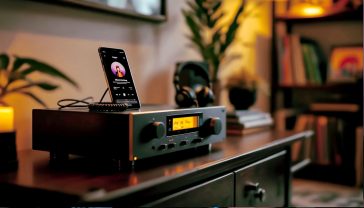Are air source heat pumps expensive to run?
The cost of running an air source heat pump will depend on the size of your home and the efficiency rating of the system. In most cases, the cost…

This post may contain affiliate links. If you make a purchase through these links, we may earn a commission at no additional cost to you.
With the surge in energy costs across the UK, homeowners are actively exploring cost-effective and efficient heating solutions. Air-source heat pumps have emerged as a frontrunner in this quest, offering a greener and more sustainable alternative to traditional gas boilers.
This growing interest prompts a crucial question: are air source heat pumps a budget-friendly solution, or do they entail higher operational costs? In this comprehensive guide, we delve into the economics of air-source heat pumps, examining their cost-effectiveness in the context of rising energy bills and environmental concerns.
Key takeaway: Though the initial investment is high (upwards of £5,000 with grants), ASHPs offer lower energy bills and greener heating. The decision to switch depends on various factors, including the system’s efficiency, electricity prices, and your home’s heating requirements.
Air Source Heat Pumps vs. Gas Boilers
Let’s compare costs and performance with the traditional gas boiler:
1) Which is cheaper: A Gas Boiler or an Air Source Heat Pump?
When considering the cost of a heating system, it’s important to look at both the upfront installation cost and the ongoing running costs.
Installation Cost: The initial cost of installing an air source heat pump is higher than that of a gas boiler. The average cost of installing an air source heat pump is between £4,000 – £15,000, while a new gas boiler costs between £1,500 – £4,000 (source: GreenMatch, BoilerGuide).
Running Costs: The running costs of an air source heat pump are generally lower than a gas boiler. The average annual running cost of an air source heat pump is between £400 – £1,000, while a gas boiler costs between £550 – £1,500 (source: GreenMatch, BoilerGuide).
In the long run, the lower running costs of an air source heat pump can offset the higher initial cost, making it a potentially cheaper option overall.
2) Which is Better: Gas Boiler or Air Source Heat Pump?
The “better” option between a gas boiler and an air source heat pump depends on various factors, including your budget, space availability, noise tolerance, and environmental considerations.
Efficiency: Air source heat pumps are more efficient than gas boilers, converting 1kW of electricity into over 3kW of heat, while a new condensing gas boiler will convert 1kW of gas into around 0.9kW of heat (source: The Eco Experts).
Lifespan: Air source heat pumps typically have a longer lifespan than gas boilers, potentially lasting up to 30 years compared with 10-15 years for a gas boiler (source: IdealHome).
Space: Air-source heat pumps require more space than gas boilers, which could be a consideration for some homeowners (source: IdealHome).
Grants: There are grants available for both air-source heat pumps and gas boilers, which can help offset the cost (source: The Eco Experts).
Both gas boilers and air-source heat pumps have pros and cons, and the best choice will depend on the specific circumstances and priorities of the homeowner for now.
Here is a detailed look at the key factors determining air source heat pump running costs.
How Do Air Source Heat Pumps Create Heat?
Air source heat pumps work by extracting latent heat from the outside air. This heat is absorbed by refrigerant fluid circulating through an outdoor unit with coils and a fan.
The refrigerant passes into an indoor unit that compresses it, increasing its temperature. This heat is transferred to your home’s central heating system and hot water supply.
Air source heat pumps move existing heat rather than generating it through combustion like gas boilers. This makes them much more energy efficient.
COP Efficiency of Air Source Heat Pumps
A major factor in running costs is the Coefficient of Performance (COP) of the air source heat pump system. COP measures efficiency – the ratio of heat output to electrical energy consumed.
- COP of 2.5-3 is considered efficient
- COP of 3-4 is very efficient
- COP above 4 is excellent
Higher COP means lower running costs. A system with a COP of 3 could produce 3kW of usable heat from just 1kW of electricity.
When choosing an air source heat pump, look for units with a high COP, specifically at colder outside temperatures. Efficiency can vary based on external conditions but the higher the COP, the more you’ll get out of it overall.
Air Source Heat Pump Installers can advise on the best system for your home’s size and exposure.
Electricity Costs to Run a Heat Pump
The cost of electricity is a pivotal factor in determining the running expenses of air-source heat pumps. While they are more energy-efficient than direct electric heaters, the price of electricity often surpasses that of gas.
1. Compare and Switch: Diligently compare electricity tariffs using comparison websites like uSwitch or MoneySuperMarket. These platforms offer an easy way to find and switch to the most economical provider in your area.
2. Embrace Green Energy: Consider green energy suppliers such as Bulb, Octopus Energy or Ecotricity. These providers offer competitive rates for 100% renewable electricity, aligning cost savings with environmental stewardship.
3. Smart Meter Insights: Utilize smart meters to monitor and manage your energy consumption. These devices provide real-time data, helping you understand and reduce electricity usage.
4. Energy Efficiency at Home: Enhance your home’s insulation to minimize heat loss. Consider integrating solar panels to generate your electricity, further reducing dependency on external power sources.
5. Off-Peak Savings: Operate your heat pump during off-peak hours when electricity rates are lower. Typically, these periods are during the night or weekends. Check with your electricity provider for specific off-peak times.
6. Real-world Examples: Look for case studies illustrating how homeowners have successfully reduced their electricity costs using these strategies. These real-life scenarios can provide practical insights and inspire similar implementations.
Implementing these strategies can significantly impact your heat pump’s running costs, making it both an economically and environmentally sound choice for home heating.
Impact of Climate on Heat Pump Efficiency
The climate in your area impacts real-world efficiency. Colder regions require more electrical input to extract heat from frigid winter air. Hotter areas allow air source heat pumps to operate closer to their optimal COP.
Well-insulated, newer builds maintain internal warmth, enabling better performance. Draughty, period homes make it harder to retain heat. Internal insulation can help cut heat loss.
Outdoor units should be installed in a south-facing position protected from wind, rain and snow. This prevents icy coils that reduce efficiency. Some heat pumps use defrost cycles to remove frost buildup.
Temperature Considerations
Your area’s climate plays a pivotal role in the efficiency of air-source heat pumps. In colder regions, these systems need more electrical input to extract heat from the chilly air, necessitating models designed for low temperatures. Conversely, in warmer areas, heat pumps reach their optimal efficiency levels more easily.
Home Insulation and Performance
The efficiency is also tied to the insulation quality of your home. Newer, well-insulated buildings maintain warmth more effectively, enhancing heat pump performance. In contrast, older homes with drafts may require additional insulation to improve efficiency and reduce heat loss.
Optimal Installation for Efficiency
The placement of outdoor units influences performance. Ideally, they should face south and be shielded from wind, rain, and snow to prevent efficiency-reducing ice formation. Additionally, selecting models with defrost cycles can be beneficial in managing frost buildup.
Tailored Solutions
For optimal efficiency, it’s recommended to consult with HVAC professionals. They can provide advice tailored to your local climate and home’s specific needs, ensuring your heat pump operates at peak efficiency.
Supplemental Heating Costs
If temperatures drop drastically, air source heat pump output may not fully meet your heating demand. Supplemental electric heaters can provide a boost.
Integrated immersion heaters that switch on automatically are one option. Freestanding plug-in electric heaters offer more flexibility but must be manually operated and are expensive on electricity.
Minimise the need for backup heating by weatherproofing your home. However, plan contingently with the view that supplemental heating will increase costs somewhat during extremely cold spells.
Installation and Maintenance
A professionally installed, well-maintained system will operate at peak efficiency and reliability. Consider full parts and labour warranty packages from suppliers.
Annual servicing is wisest, but experts recommend 2-3 years at most by approved technicians. Refrigerant levels, air filters, coils, and fan performance should be checked and adjusted.
While air source heat pumps involve some maintenance costs, modern models are designed for long-term operation with few major repairs required.
Air Source Heat Pump Brands
Here is a list of top air source heat pump brands and their websites with brief descriptions for UK homeowners:
Weighing the Costs and Benefits of an Air Source Heat Pump
An efficient air source heat pump in an appropriately sized and insulated home provides affordable heating in most UK regions, but the current buy-in, even with grants, is upwards of £5,000 for a full system.
You stand to benefit from lower energy bills and greener heating for years but by enough to justify the outlay? It will take a long time if you’re being practical about it.
Adoption must increase before the kit is on par with a gas boiler. When that happens, it’ll be a no-brainer to switch for almost everyone in the market for a new heating system. How long until that happens is anyone’s guess at this point. 5 years? 10 years? 30 years?
An air source heat pump is ~4x as expensive but generates ~3x more energy; however, its energy (electricity) costs ~4x as much as gas. So the gas boiler is cheaper for the user but more expensive for the environment. As adoption and innovation increase, costs will come down.
According to Sky News, the Government wants them to cost the same as gas boilers by 2030 at the latest and is buying innovation with generous grants to manufacturers to try and achieve it. The idea being that we’ll have cleaner, greener and cheaper energy as a result.
By 2030, you’d expect that to be closer to parity on the upfront cost, should that drive be a success, but questions remain if we’re solely reliant on electricity, how that will affect the wholesale price versus what it costs now?
The Bottom Line
Air source heat pumps can be economical depending on the system’s efficiency rating, electricity prices in your area, and your home’s heating requirements, assuming you’ve got the budget to install one. If you have, then you’re fortunate.
Consider all the factors impacting running costs. Seek multiple quotes and speak to trusted installers to determine if an air-source heat pump is economical for your household. They are the better option for the environment, but that doesn’t come without some financial sacrifice in the short term. If you have the budget, it’s likely an attractive option from a cost and environmental perspective.
See also: How do Air Source Heat Pumps Work?






